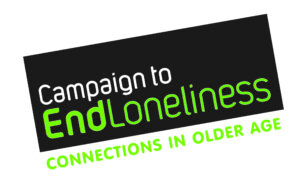
Too many people are lonely. And isolation is very bad for our health and wellbeing. That's according to experts and academics. With the recent John Lewis 'man on the moon' advert, we have also seen the issue achieving ‘cut through’ - as advertisers and pollsters like to say - so now a lot of people are talking about it.
There is, thankfully, a growing body of evidence, not just on the nature and prevalence of the issue, but on what to do about it. SCIE’s guide on social isolation is a good place to start if you want to find out more about what works.
And it is welcome news that the new Centre for Ageing Better is making this subject a priority for its work programme. But that’s for the longer term; recent research found that up to 12 percent of people aged 50 and over are ‘struggling and alone’.
 There is much that commissioning could do to generate better outcomes for isolated people. In Birmingham, for instance, as a result of the authority using an outcome-based approach to commissioning, providers are explicitly funded on their ability to reduce isolation. And much can be done by local authorities and clinical commissioning groups, through their role as market shapers, to encourage innovative, but often small and emergent organisations, with track records of reducing isolation, to enter the market.
There is much that commissioning could do to generate better outcomes for isolated people. In Birmingham, for instance, as a result of the authority using an outcome-based approach to commissioning, providers are explicitly funded on their ability to reduce isolation. And much can be done by local authorities and clinical commissioning groups, through their role as market shapers, to encourage innovative, but often small and emergent organisations, with track records of reducing isolation, to enter the market.
 Developing staff is also critical. At SCIE, we are now training large numbers of workers in skills to tackle social isolation and in strength-based approaches that can find and build local networks. But commissioners and the workforce don't have all the answers. Loneliness is a deeply personal experience, and unsurprisingly, the solutions for people often need to be personalised. So it's vital people who use services are closely involved in shaping local services, as they have been successfully in Buckinghamshire.
Developing staff is also critical. At SCIE, we are now training large numbers of workers in skills to tackle social isolation and in strength-based approaches that can find and build local networks. But commissioners and the workforce don't have all the answers. Loneliness is a deeply personal experience, and unsurprisingly, the solutions for people often need to be personalised. So it's vital people who use services are closely involved in shaping local services, as they have been successfully in Buckinghamshire.
The impact of isolation can be simply terrible for people. But, with good commissioning, a skilled workforce supported through innovation and local co-production, we can see many more benefit and break the cycle of loneliness and isolation.
4 comments
Comment by B.JOHNSON posted on
usual fine words and plans and money for groups - but on the sharp end ( vis us isolated people ) nothing happens - no one comes near us - and if you ask for help - theres never any money - or theres a waiting list - or some other excuse - THAT IS THE REALITY !! - in my case ( male 60 disabled ) - i rarely see anyone - i have one friend who lives 300 miles away whom i keep in contact with by skype - and if the government cut my disability benefit the internet will have to go as food is more important - NO ONE comes near me - and i could be dead on the floor for all society cares - i am also willing to bet this is the case for a LOT of people who, to use a well worn governmnt phrase " have slipped through the net " - so sorry to me this is just more BS - fine words and sentiments - zero action - PROVE ME WRONG !!
Comment by pauline massey posted on
And how does this square with the government's cuts to welfare budgets? In Oxfordshire there are plans to massively cut adult social care budgets , thus affecting day care centres which provide respite for isolated elderly people. I was a carer for a relative with Alzheimers' disease and without the day centres I couldn't have managed alone. These cuts will impact on the NHS eventually.
Comment by Liz Connelly posted on
It is important to be clear about what is meant by isolation. Also recognise that many have the ability (i.e. mobility) to help themselves, while for those who are unable to get out and about intervention is essential. The first group may need one to one support to identify what will help, but should move to a place where they are no longer in that situation. Also recognition of the fact that if you live on your own, you will have times when you may feel lonely if your definition is not having someone else in the same building. Then need to identify things that will help with those times. Complex issue with many solutions.
Comment by Pearl Baker posted on
What is isolation? You can feel lonely and isolated while living with others. Carers feel 'isolated' because we use so much energy 'fighting' a system not caring for family members, and nothing improves. LA have no money, day centres closed, no rehabilitation,absolutely nothing. If you complain they usually make you wait 20 days, and another 20 days, if you remain unhappy, then comes the standard reply; take it to the Ombudsman, and they don't have a clue. In the meantime you are left trying your best for them, while at the same time, your blood pressure is going through the roof, then that would be the disaster if all disasters.
I campaign hard for my client group the Mentally Ill, no Care Plan, Carer denied Carer status. The CCGs response wait 20 days. The 'Merry Go Round' continues.